Created by Illinois Social work EDU Contributing Writer
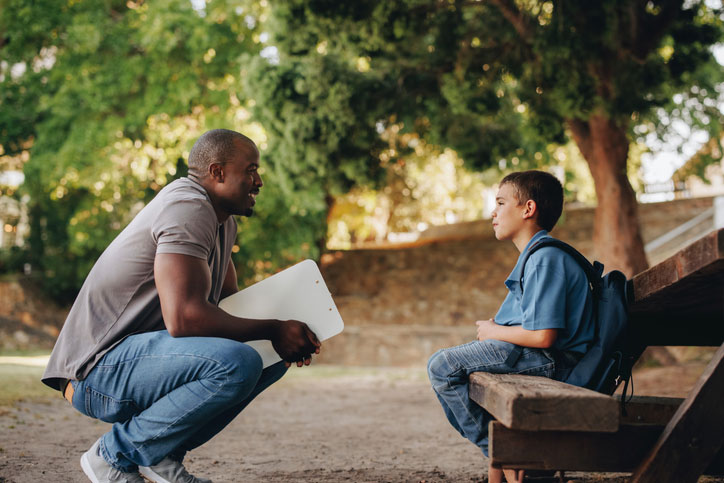
What Does a School Social Worker Do?
School social workers can be involved at some level in almost any aspect of student life, educational support, and administrative decision-making. The entire school community relies on them in some way, so they look out for everyone, from students and families to faculty and administration. It goes without saying that they have countless responsibilities and diverse duties to attend to.
But if you pull back far enough to see it all in context, you’ll appreciate that their one goal is to simply ensure that schools, and everyone in them, has the means to succeed.
School social workers play many roles. At times, they provide counseling, helping students process trauma, develop life skills, and speak up when their rights or well-being are at risk. They also support families dealing with behavioral issues, housing instability, or food insecurity, working to remove barriers so students can succeed.
At other times, school social workers play a support role, helping teachers develop and access resources for individualized education programs (IEPs). Just as often, they take the lead, serving as a lifeline for vulnerable students in need of resource support and one-on-one attention to get through difficult episodes, whether academic, social, or issues at home.
Advocacy at all levels is a primary duty too. Equipped with years of experience, training, and education, they step up not just for the rights and needs of individual students, but for entire school systems too, guiding policymakers in the best ways to make schools safer and more supportive.
How School Social Workers Are Tackling One of Chicago’s Deadliest Issues
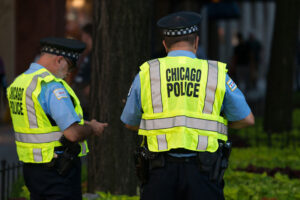 Gun violence has long been a major issue for Chicago. But while it impacts everyone, kids are the ones that all too often take the brunt of the long-term fallout.
Gun violence has long been a major issue for Chicago. But while it impacts everyone, kids are the ones that all too often take the brunt of the long-term fallout.
According to a 2022 survey conducted by Ann & Robert H. Lurie Children’s Hospital of Chicago, 27% of the city’s children have heard gunshots at home. 12% know someone who’s been shot. One in five parents say their children’s mental health has been affected by gun violence.
Shootings are only one form of trauma kids in Chicago contend with. Domestic violence and bullying are also facts of life for many students here.
In 2019, educators and school social workers in Chicago finally had enough, staging a strike to demand action and force the hand of policymakers.
As a result of the 11-day strike in October that year, the city government promised to have at least one school social worker and nurse in every public school by 2023. With this safety net in place, students affected by violence now have immediate access to medical, emotional, and social support.
While this is undoubtedly a win for schools and students, it’s also a major victory for the entire Chicago metro area. Just as importantly, this wide-scale act of informed advocacy and protest demonstrates that school social workers everywhere have the power to usher in real systemic change.
Requirements to Become a School Social Worker in Illinois
To work as a school social worker in Illinois, holding a standard LSW or LCSW license is not enough. You must obtain a Professional Educator License (PEL) with a School Social Work Endorsement, issued by the Illinois State Board of Education (ISBE). This specialized credential allows you to work in K–12 school settings and confirms that you’ve met additional education, internship, and testing requirements beyond traditional social work licensure.
To earn your PEL, you’ll need to do three things:
- Earn a CSWE-accredited Master of Social Work (MSW) that is also approved by the Illinois State Board of Education (ISBE)
- Complete a 600-hour internship in a school setting
- Pass the Illinois Licensure Testing System (ILTS) School Social Worker Test
Alternative Pathways
Short-Term Approval – For candidates close to completion of requirements. Designed for individuals who are nearing completion of their MSW and required coursework but haven’t yet met all qualifications for full PEL:SSW licensure. This allows candidates to work temporarily while finalizing requirements under limited approval.
Reciprocity – For experienced school social workers licensed in another state who wish to practice in Illinois. Applicants may be eligible for an Illinois PEL with School Support Endorsement by submitting verification of their out-of-state license and meeting state-specific criteria. [ISBE reciprocity info]
Related Resources
For more information on licensing requirements and resources, see:
IASSW PEL:SSW Overview – Official overview of the endorsement, pathways, and requirements
ISBE: PEL School Support Personnel Endorsements – Illinois State Board of Education licensing info
IASSW/ISBE Best Practice Guide (PDF) – Comprehensive licensing, renewal, and PD guidance
ILTS Registration Portal – Register for the School Social Worker content exam
Here’s what that process will look like.
1. Earn Your MSW in School Social Work Through a Qualified Program
Assuming you already have a bachelor’s, your first big step to becoming a school social worker in Illinois is to choose an MSW program that offers a school social work track. This program must be accredited by the Council on Social Work Education (CSWE) and approved by the Illinois State Board of Education (ISBE).
That gives you 15 universities to choose from:
Aurora University
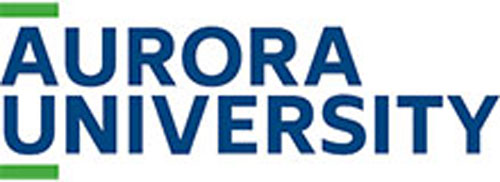
Governor’s State University

Northeastern Illinois University

Chicago State University
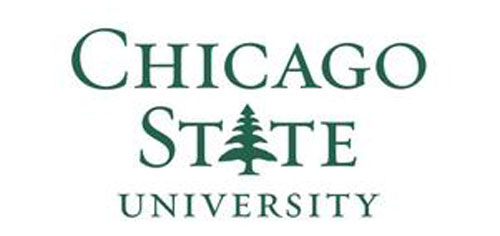
Illinois State University

Southern Illinois University

University of Illinois Urbana-Champaign

Dominican University

Lewis University

Southern Illinois University, Carbondale.

Southern Illinois University, Edwardsville

University of St. Francis
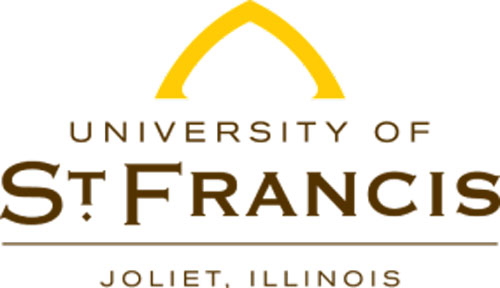
The Erikson Institute

Loyola University Chicago

The University of Chicago
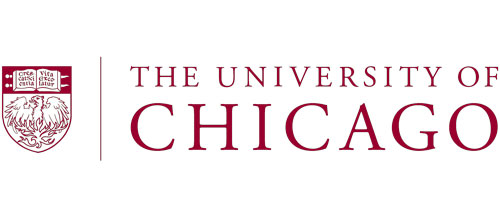
At the master’s level, you’ll learn how to serve students, families, and education professionals, along with all the social work fundamentals you’d expect from an MSW program, including case management, crisis intervention, and counseling. Additionally, the ISBE says all future school social workers should take classes on:
- Instructing exceptional children in cross-categorical special education programs
- Reading methods and content reading methods
- Serving English learners
All ISBE-approved MSW programs include these classes. You can earn your MSW in school social work in about two years. If you already have a Bachelor of Social Work (BSW), you can enroll in an advanced standing MSW, skipping classes on foundational social work principles so you can earn your MSW in about one year.
But what if you already have an MSW and you didn’t take a specialty track in school social work?
There’s even a specialized path to becoming a school social worker specifically designed for existing LSW and LCSWs interested in working for the school system. You will find graduate certificate programs built to include exactly the classes required to earn your Professional Educator License with a school social work endorsement. These purpose-built programs typically include only the classes you need, covering the three areas ISBE requires.
2. Complete a Required School System Internship
As part of your MSW or post-master’s program, you’ll also complete a 600-hour internship in which you’ll practice your new skills in an Illinois public school under the guidance of a masters-prepared social worker. However, that’s the minimum number of internship hours the ISBE requires — some programs involve even more.
During this time, you’ll practice and be evaluated on key skills as outlined in ISBE regulations including:
- Social service delivery
- Goal-setting with students
- Performing assessments, evaluations, and consultations
- Creating IEPs
- Documentation
- Leading group sessions with general and special education classes and individual sessions
- Observing classrooms
- Referring students and parents to other professionals and agencies as needed
- Performing crisis interventions
- Foundations of School Social Work (29 scored questions; 7 unscored questions).
In most programs, you’ll complete your internship part-time while also taking classes. In others, you’ll work full-time without taking classes. Either way, your instructors and fieldwork supervisors will be there to make sure your experience is enriching and formative.
3. Pass the School Social Worker Test
The final step to becoming a school social worker in Illinois is to pass the Illinois Licensure Testing System (ILTS) School Social Worker Test — typically Exam 238, the current standard version. This exam is made up of 100 multiple-choice questions.
Questions are divided up into three subareas that are in turn made up of three to four smaller domains:
- Human development and learning.
- Cultural competence and diversity support strategies.
- School social work practice with individuals and groups.
- School social work practice with home, school, and community systems.
- School Social Work Intervention and Services (29 scored questions; 7 unscored questions).
- Principles of measurement, assessment and evaluation.
- Developing assessment-based methods to support students.
- Promoting healthy learning communities.
- Organizational principles, planning, and management of services.
- The School Social Worker and the Learning Community (22 scored questions; 6 unscored questions).
- Communication, consultation, and collaboration.
- Ethics, advocacy, and facilitation.
- Professional development.
You’ll have three hours and 15 minutes to finish. The testing fee is $110. The Illinois Chapter of the National Association of Social Workers (NASW-IL) and the Illinois Association of School Social Workers (IASSW) both offer fantastic test prep materials on their websites.
Maintaining Your School Social Work License
Once you’ve earned your PEL, you’ll need to renew it every five years. The cost of renewal is $50, but your biggest goal in that timeframe is to earn 120 professional development hours.
You can earn hours by attending classes, seminars, and other events hosted by organizations approved by the ISBE. Both NASW and the Illinois Chapter of NASW are approved providers, as is IASSW. You can also take classes through colleges, Illinois K-12 schools and districts, and a wide range of other state-based institutions.
Finding a School Where You Can Make the Biggest Impact
If the process of becoming a school social worker in Illinois seems a little strenuous, that’s by design. Throughout your career, you’ll help students, families, and colleagues through just about everything. The ISBE licensing process ensures you’ll have the knowledge and experience to tackle it all.
That being said, though, no two schools are alike. As you start your career, it’s important to inventory your strengths and talents and really think about where you feel you’ll be able to fit in and effect real change.
Urban Schools
If you choose to get started in an urban area like Chicago or East St. Louis, you’ll be working in some of the most diverse school districts in the country. Helping your colleagues build an inclusive, supportive learning community will be both your biggest challenge and your greatest opportunity.
As a school social worker in an urban district, you won’t just be contributing to the academic success of the students you work with. You’ll be instrumental to their social and emotional development too.
If that’s what excites you most about this career, there’s no better place to be than Chicago Public Schools.
The Impact of Student-First Policies in Chicago Public Schools
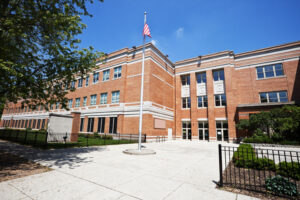 Staff at the Chicago Public School District Office of Social and Emotional Learning (OSEL) work closely with educators, administrators, and social workers to implement student-first policies that foster emotional intelligence. Tactics range from teaching emotional regulation skills in the classroom to creating support teams for Chicago’s most vulnerable students. School social workers are often at the forefront of OSEL initiatives — and their impact is measurable.
Staff at the Chicago Public School District Office of Social and Emotional Learning (OSEL) work closely with educators, administrators, and social workers to implement student-first policies that foster emotional intelligence. Tactics range from teaching emotional regulation skills in the classroom to creating support teams for Chicago’s most vulnerable students. School social workers are often at the forefront of OSEL initiatives — and their impact is measurable.
Two years after OSEL policies were implemented district-wide, suspensions dropped by 65%, expulsions by 57%, and police notifications by 19%. The number of behavioral health teams in the district grew from just 15 to an astonishing 64. Working in an inner-city district is definitely challenging, but this kind of progress shows why it’s worth it.
Rural Schools
Illinois is home to about 300 rural school districts. While these districts aren’t as densely-packed as their urban counterparts, they have their fair share of challenges.
As the state’s rural population has declined in recent years, so have resources and jobs. According to the Council for a Strong America, Illinois’ rural students are more likely to live in poverty than their urban peers. They’re also more likely to be behind in math, language, and social-emotional proficiency. And like other rural communities across the country, these areas often struggle with a shortage of mental health practitioners — especially those who specialize in serving children.
If you start your career in one of these communities, your expertise in mental health and childhood development will be valued, and vital.
For teachers and parents alike, you’ll be the point-person for many things the community may lack the dedicated resources to handle. This could involve everything from developing strategies designed to address behavioral issues to helping students get access to special education curriculum and IEP accommodations. Your colleagues in Chicago may have similar authority in handling these matters, but in Downstate Illinois, you’ll have the chance to help entire communities build resiliency.
Suburban Schools
The phrase “suburban school” comes with certain connotations. Many believe they’re inherently better-funded than inner-city or rural schools and that they’re typically made up of a largely homogenous student population. In the areas around Chicago, and in some of Illinois’ small-to-mid-size communities outside the major metro areas, that’s not always the case.
In the Evanston-Skokie School District, 40% of students are from low-income families and 5% are homeless. Further out in Aurora, 42% of students are English language learners.
No matter where in Illinois you start your career, there are students and families that will turn to you for the help they need. As a master’s-prepared and properly credentialed school social worker, you’ll have the training and education to provide it.
Why School Social Work Matters More Than Ever
Based on SSWAA’s Unite to Ignite campaign, school social workers face a number of pressing workforce issues:
– Role confusion and misidentification (e.g., being mistaken for school counselors)
– Unmanageable student caseloads
– Lack of district support for professional development
– Pay that doesn’t match qualifications or responsibilities
These challenges not only affect school social workers themselves, but also the students and communities they serve. Addressing these barriers is key to fostering safe, inclusive, and equitable learning environments.
Advocacy & Awareness Tools
Through the Unite to Ignite campaign, the SSWAA offers a suite of resources for school social workers, stakeholders, and advocates:
Resources for School Social Workers:
For Stakeholders (Principals, Parents, Boards)
Get Involved
Want to advocate for your profession?
Sign up to become an Impact Ambassador and gain access to training, storytelling platforms, and advocacy tools to help educate the public about the essential work of school social workers.
Frequently Asked Questions
How long does it take to become a school social worker in Illinois?
It typically takes 6–8 years total, including a bachelor’s degree, MSW, internship, and exam. If you already hold a BSW, you may qualify for an advanced standing MSW and finish more quickly.
Can I work in a school setting before I earn my PEL?
Yes — candidates nearing completion may qualify for Short-Term Approval to work while completing final requirements.
What’s the difference between LSW/LCSW and the PEL:SSW?
LSW/LCSW are social work licenses issued by IDFPR, but school social workers must also hold a PEL with a School Social Work Endorsement from ISBE to work in K-12 settings.
Which version of the ILTS exam should I take?
Unless your program specifies otherwise, take Exam 238, the current standard version introduced in 2020.
Do school social workers in Illinois need to complete professional development?
Yes — you must complete 120 PD hours every 5 years to maintain your PEL:SSW.





